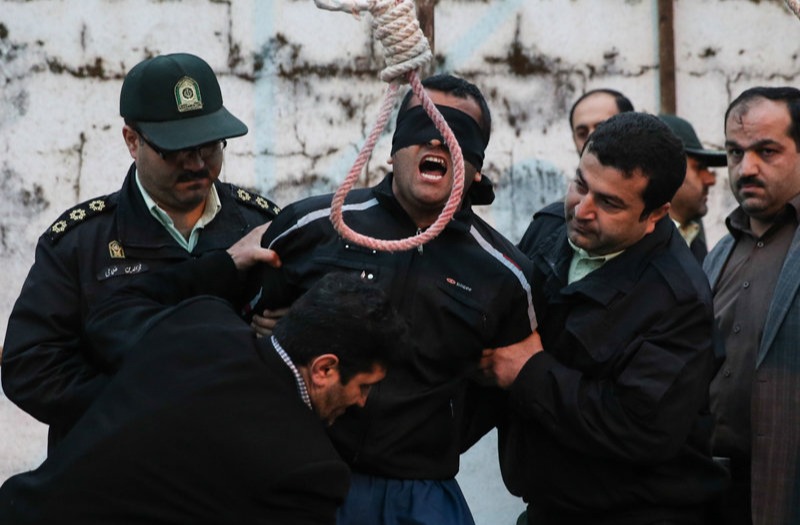Iran’s escalating execution rate, reaching a 30-year peak of 1,000 in 2024, signals a desperate attempt by the regime to cling to power in the face of mounting internal dissent and external setbacks. This alarming figure, representing over three-quarters of global executions, is likely an underestimate given the prevalence of secret executions. The surge in state-sanctioned killings, occurring with disturbing frequency, targets a broad spectrum of society, including women, children, and political prisoners, often without due process or fair trials. The regime’s paranoia, fueled by the growing popular resistance and defeats of its proxies in regional conflicts, particularly against Israel, manifests in this brutal crackdown on its own citizens.
The National Council of Resistance of Iran (NCRI) provides compelling evidence linking the execution surge to the regime’s vulnerabilities. The last quarter of 2024, coinciding with significant losses for Iran-backed groups like Hezbollah, witnessed a sharp increase in executions. This pattern suggests a direct correlation between the regime’s instability and its intensified repression. The regime’s actions reflect a desperate attempt to quell dissent and maintain control as its grip on power weakens. The escalating violence against its own people is a clear indication of the regime’s growing fragility, not strength. The international community must recognize this pattern and hold the Iranian regime accountable for its human rights abuses.
Beyond the sheer number of executions, the brutality of the punishments inflicted further underscores the regime’s desperation. Medieval-style punishments, including public floggings, amputations, and eye-gouging, are routinely employed alongside hangings. Ironically, many executions are for drug-related offenses, despite the Islamic Revolutionary Guard Corps (IRGC), a powerful branch of the regime, allegedly controlling the lucrative drug trade. This hypocrisy highlights the regime’s cynical use of the legal system to eliminate perceived threats and maintain its control, rather than upholding justice.
Former political prisoner Behzad Nazari, who escaped from one of Iran’s most notorious prisons, offers firsthand insight into the regime’s ruthlessness. Having endured torture and witnessed the execution of his own sister, Nazari argues that the surge in executions is a clear sign of the regime’s weakness and impending downfall. He emphasizes the regime’s reliance on repression, terrorism, and warmongering to maintain its grip on power. The regime’s escalating brutality reflects its growing fear of an uprising similar to those that have toppled other dictatorial regimes in the region.
The Iranian regime’s actions are not occurring in a vacuum. The NCRI highlights the regime’s external setbacks, particularly the defeats of its proxies in conflicts against Israel and the weakening of the Assad regime in Syria, as key factors contributing to the escalating repression within Iran. These external pressures, coupled with internal resistance and a nationwide boycott of elections, have further destabilized the regime and fueled its paranoia. The regime’s desperate attempts to maintain control through increased executions and brutal punishments are ultimately counterproductive, further enraging the populace and strengthening their resolve to overthrow the regime.
The international community cannot remain silent in the face of these atrocities. The NCRI urges the US and UK to hold Iran accountable for its human rights abuses, linking any dealings with the regime to an immediate halt to executions and torture. The “No to Execution Tuesdays” campaign, with political prisoners across 30 prisons engaging in weekly hunger strikes, and the brave women of Evin prison chanting protest songs, demonstrate the unwavering resistance within Iran. The international community must amplify these voices and support the Iranian people’s struggle for freedom and democracy by condemning the regime’s actions and imposing meaningful consequences for its egregious human rights violations.











